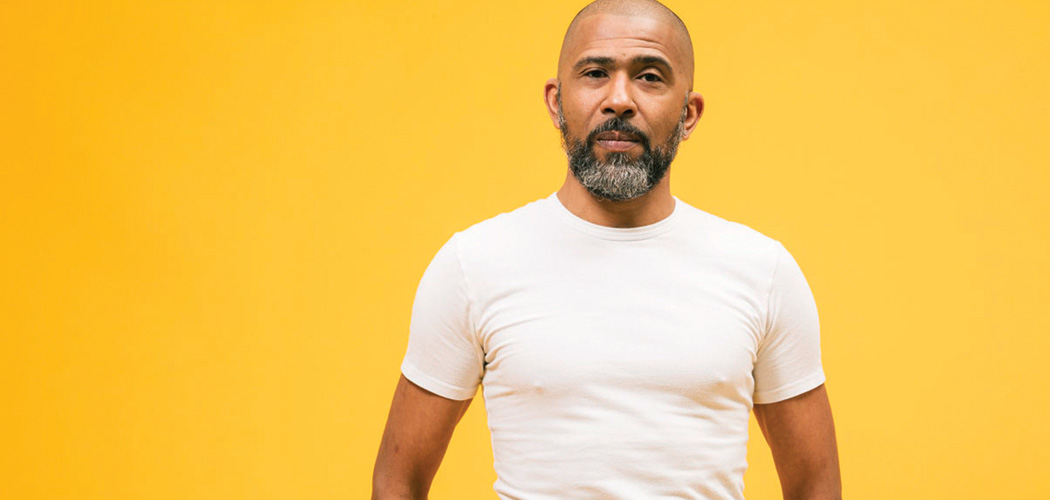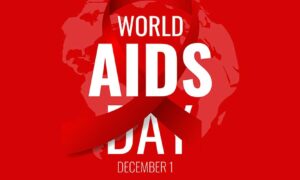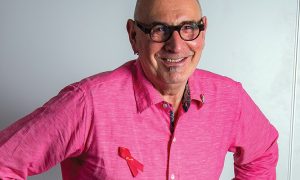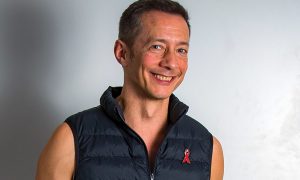Peer mentor project coordinator and outreach worker Marc Thompson works at Positively UK, a charity that provides peer-led support and information to young people living with HIV. Here he explains the importance of honest dialogue around HIV within the black, Asian and ethnic minority communities.
Hi Marc, have you come across cultural or religious pressures that have an impact on gay or bi men of colour not seeking sexual health services?
I haven’t directly but my colleagues at the Naz Project in London do some excellent work with faith communities to raise awareness to reduce stigma about sexual health and sexuality for gay and bi men of colour. In my work with people who are diagnosed positive I don’t see as many black and Asian and ethnic minority men access services directly. HIV stigma is still present and affects many people. In my communities HIV is not something we talk about very often and this can only contribute to stigma and people’s sense of isolation.
What are your hopes for the future in this area?
I’d like there to be a space where men of colour feel confident and safe enough to make sure that they seek the right support and right advice around living with HIV; that’s really important for me.
I’d like to see us have more of a dialogue in the black minority and ethnic communities around sexual health; an open and honest dialogue.
And I’d like to see the wider gay community have a more honest conversation about diversity, and that’s not just about race, that’s about diversity – what makes us up as a community, because that diversity is our strength. We are this rich, wide ranging, multi-coloured population of people, and that speaks volumes to me. And there’s a lot the LGBT community can learn, and has learnt in the past, from the black civil rights movement. I think it’s really important.
How do you create a more honest and open dialogue around HIV within the black minority and ethnic community?
I think start by acknowledging that HIV is and continues to be an issue that impacts BME communities disproportionately. We need to make sure that men of colour have the right information about what HIV in 2016 into 2017, that it does impact on them, where to get tested, the importance of treatment and what treatment as prevention means. We need to make sure we provide opportunities – spaces both in the real world and online – to share our narratives about how HIV affects us, but most importantly we need to work together as a community to reduce HIV stigma.
How do you reduce stigma?
That’s a big question. It’s always going to be there, people are always going to be fearful, but I think one of the things you can do is provide up-to-date and relevant information to people. I think there are lots of men who still don’t know what undetectability means, that testing and treating is a really good thing for people. It’s about continuing to provide information about what HIV means now and trying to get people to be less afraid of HIV.
In what ways are you guys exploring how to reach people that you currently are struggling to reach, in order to get someone to test for HIV for the first time, for example?
So it’s not all downbeat; the good news is that testing rates have increased among gay men. We don’t know the figure of what’s BME men or white men, but we know that overall gay men test more frequently. Undiagnosed infection and late diagnosis has decreased amongst gay men, so that’s a good sign. More of us are getting tested, so the message is getting out there. Things like National HIV Testing Week are working. I think it’s about making testing accessible, that it’s easy to do, that people thing it’s relevant to them and that they need to test.
So you are seeing a change for the better among the BME community?
Yeah, but I think amongst gay men generally. Although we’re seeing HIV rates go up over the past couple of years, that’s also due to more people testing in the first place, which means fewer late diagnoses, less undiagnosed infection, which means more people who are diagnosed get onto treatment, which means they therefore become less infectious. And so we start moving towards reducing the number of people [who get infected]. We have the tools to stops HIV; we’ve just got to be smarter about how we employ them.
So if we think about PrEP, as we know PrEP isn’t available in the UK, you can buy it online, but those people who really need it who may be more vulnerable, don’t have the money to afford it or don’t know how to get hold of it, are the ones that probably need it the most. And that could well be young men of colour or young men who have migrated here. So in my work I see lots of people who have migrated here from parts of Eastern Europe, Latin America, who aren’t necessarily defined as men of colour of minority ethnic, but they’re not British. So this is my issue with when we talk about BME communities: we picture black or Asian, and possibly dark skinned Latino; we’re not thinking about blond haired Brazilian boys – we count them as white; we don’t think about Polish and Romanian guys who arrive here – we count them as white. So when those guys fall through the cracks and have really high prevention needs we don’t think about them. The young black man that maybe is born in Hackney who went to school here, has friends, knows the clinical service, knows the NHS, they have access to services and will understand it. The guys who have arrived here from Ghana, Uganda, Romania and they don’t know the healthcare system, your education needs are going to be higher, and so prevention needs are going to be higher.
What is your message to a man of colour who has just been diagnosed positive?
First of all, you’re going to be OK. It’s possibly a really scary time for you, but you will be fine. HIV won’t kill you. The prognosis today is if you get onto treatment you will live a long, healthy life. If you do all the things you’re meant to do including taking all your medication, you’ll be fine. Being on treatment means that you can become undetectable, which means you’re uninfectious, which means you won’t pass HIV on. So not only will your physical health be OK but you’re not going to transmit the virus to anybody. And that can put your mind at rest.
Secondly I’d say get some support; speak to other people who are living with HIV. You’re not alone in this. Some people get diagnosed and they think they’re on their own and that nobody understand this. But there’s a whole HIV community, which is quite diverse, where you can get support.
And what is your message to readers who are negative?
Keep doing whatever you’re doing to remain negative. Continue to get screened and tested on a regular basis. Make sure you’re having conversations about HIV with your partners. If they’re of a different HIV status to you, find out if they’re on treatment or not. Find out if you can get PrEP yourself. Ask yourself if you have access to condoms. And don’t be scared of HIV. We don’t want you to get HIV, but there’s no need to be afraid of it.
For more on the services and support offered by Positively UK to black, Asian and ethnic minority communities go to positivelyuk.org.














